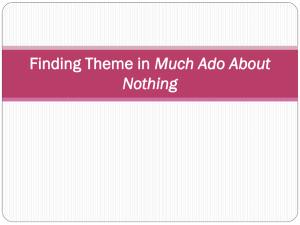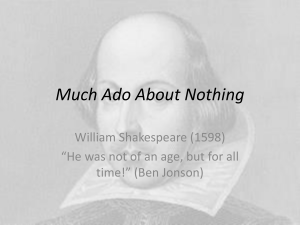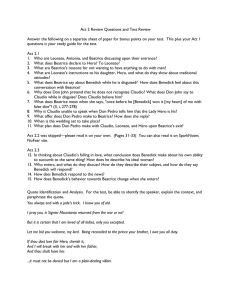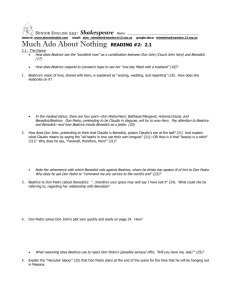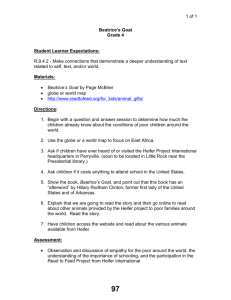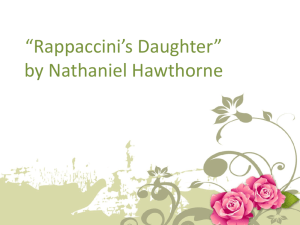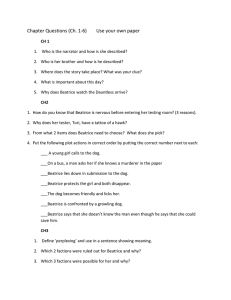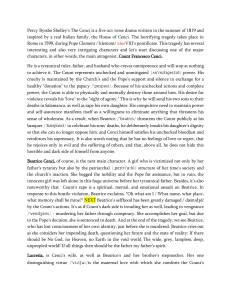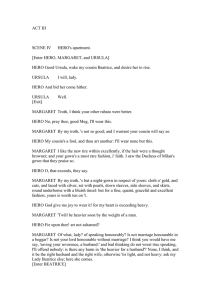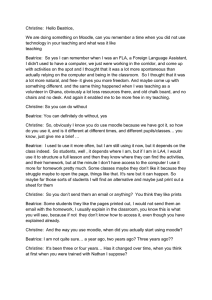Beatrice in Act 2 Scene 1
advertisement
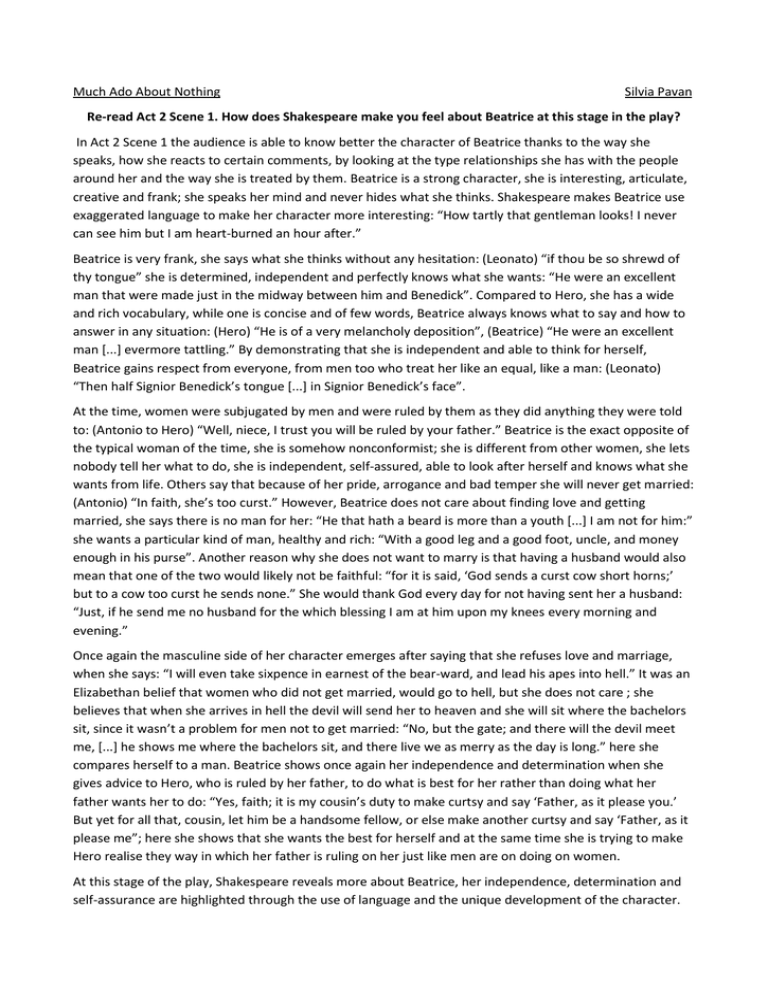
Much Ado About Nothing Silvia Pavan Re-read Act 2 Scene 1. How does Shakespeare make you feel about Beatrice at this stage in the play? In Act 2 Scene 1 the audience is able to know better the character of Beatrice thanks to the way she speaks, how she reacts to certain comments, by looking at the type relationships she has with the people around her and the way she is treated by them. Beatrice is a strong character, she is interesting, articulate, creative and frank; she speaks her mind and never hides what she thinks. Shakespeare makes Beatrice use exaggerated language to make her character more interesting: “How tartly that gentleman looks! I never can see him but I am heart-burned an hour after.” Beatrice is very frank, she says what she thinks without any hesitation: (Leonato) “if thou be so shrewd of thy tongue” she is determined, independent and perfectly knows what she wants: “He were an excellent man that were made just in the midway between him and Benedick”. Compared to Hero, she has a wide and rich vocabulary, while one is concise and of few words, Beatrice always knows what to say and how to answer in any situation: (Hero) “He is of a very melancholy deposition”, (Beatrice) “He were an excellent man [...] evermore tattling.” By demonstrating that she is independent and able to think for herself, Beatrice gains respect from everyone, from men too who treat her like an equal, like a man: (Leonato) “Then half Signior Benedick’s tongue [...] in Signior Benedick’s face”. At the time, women were subjugated by men and were ruled by them as they did anything they were told to: (Antonio to Hero) “Well, niece, I trust you will be ruled by your father.” Beatrice is the exact opposite of the typical woman of the time, she is somehow nonconformist; she is different from other women, she lets nobody tell her what to do, she is independent, self-assured, able to look after herself and knows what she wants from life. Others say that because of her pride, arrogance and bad temper she will never get married: (Antonio) “In faith, she’s too curst.” However, Beatrice does not care about finding love and getting married, she says there is no man for her: “He that hath a beard is more than a youth [...] I am not for him:” she wants a particular kind of man, healthy and rich: “With a good leg and a good foot, uncle, and money enough in his purse”. Another reason why she does not want to marry is that having a husband would also mean that one of the two would likely not be faithful: “for it is said, ‘God sends a curst cow short horns;’ but to a cow too curst he sends none.” She would thank God every day for not having sent her a husband: “Just, if he send me no husband for the which blessing I am at him upon my knees every morning and evening.” Once again the masculine side of her character emerges after saying that she refuses love and marriage, when she says: “I will even take sixpence in earnest of the bear-ward, and lead his apes into hell.” It was an Elizabethan belief that women who did not get married, would go to hell, but she does not care ; she believes that when she arrives in hell the devil will send her to heaven and she will sit where the bachelors sit, since it wasn’t a problem for men not to get married: “No, but the gate; and there will the devil meet me, [...] he shows me where the bachelors sit, and there live we as merry as the day is long.” here she compares herself to a man. Beatrice shows once again her independence and determination when she gives advice to Hero, who is ruled by her father, to do what is best for her rather than doing what her father wants her to do: “Yes, faith; it is my cousin’s duty to make curtsy and say ‘Father, as it please you.’ But yet for all that, cousin, let him be a handsome fellow, or else make another curtsy and say ‘Father, as it please me”; here she shows that she wants the best for herself and at the same time she is trying to make Hero realise they way in which her father is ruling on her just like men are on doing on women. At this stage of the play, Shakespeare reveals more about Beatrice, her independence, determination and self-assurance are highlighted through the use of language and the unique development of the character.
